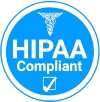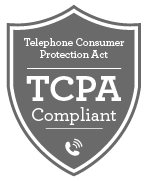UnityAI rolls out scheduling agents for outpatient clinics
Nashville-based UnityAI, an AI operations startup, announced the launch of specialized agents to help staff with scheduling, appointment confirmation, intake and follow-up.
The voice AI technology aims to support healthcare staff in outpatient clinics to answer incoming calls and proactively engage with patients. Many outpatient clinic groups have centralized business operations for the hundreds of clinics they operate.
UnityAI CEO Edmund Jackson said outpatient clinics tend to hire offshore call center staff to manage patient calls. This approach is costly and is limited by the number of hours in a day that humans have to make and receive calls.
“What we've seen is the call centers have been centralized and often offshored, and that breaks the context of the people providing services, and it's also kind of a high cost,” Jackson said in an interview with Fierce Healthcare. “So what our agents do is they look at the functions that are performed there and replace them with agents.”
Voice AI agents have near unlimited capacity to answer and receive patient calls, and, for established patients, the AI agent on the other end of the line has context on the patients’ medical history. It can also engage with patients in 90 languages, Jackson said.
The new AI platform and agents can schedule and confirm patient visits, field calls and follow up on missed appointments. The agents take into account the complexity of scheduling healthcare appointments, like managing outpatient clinical procedure schedules and routine visits.
UnityAI is powering roughly 150,000 interactions per month for outpatient clinics across medical specialties. The three year-old company is focusing on automating operations in the outpatient setting because the organizations are more straightforward to contract with than hospitals.
“Outpatient organizations are simpler than full-blown healthcare systems,” Jackson said. “The actual businesses are easier to work with as a startup … It's much more amenable in the early stages of AI to be working there, because it's a smaller surface area that you need to understand and identify. The risks are much lower. You can actually deliver a value-added product.”
UnityAI raised a $4.5 million seed round in January 2024 led by Max Ventures and has raised $6.5 million to date. It’s also backed by National Capital Networks and several healthcare investing angels in Nashville, where the company is based.
Jackson said that the hardest problem to solve for him and his team of engineers is the unpredictability of generative AI.
“The reason the conversational agents are so appealing from a consumer perspective is that they're not as scripted now as the prior generation … if you want to ask for directions to the clinic halfway through the conversation, it'll give them to them. But that flexibility also means keeping it on the rails is part of the challenge," he said.
A growing list of startups are using AI to automate patient communications for providers to hep with scheduling and follow-up. Assort Health, a specialty-specific AI platform for managing patient phone calls, raised $26 million back in April and then picked up a $50 million series B round at a valuation of $750 million last month, Tech Crunch reported.
EliseAI picked up $250 million in series E funding led by Andreessen Horowitz (a16z) to fuel its growth.
Earlier this month, Startup Hello Patient raised $22.5 million in series A funding to scale up its generative AI agents to handle patient communications for medical practices. Parakeet Health also developed an AI call center agent that can answer inbound calls, make outbound calls and text patients.
Zocdoc also launched a voice AI agent called Zo to book appointments by phone.






